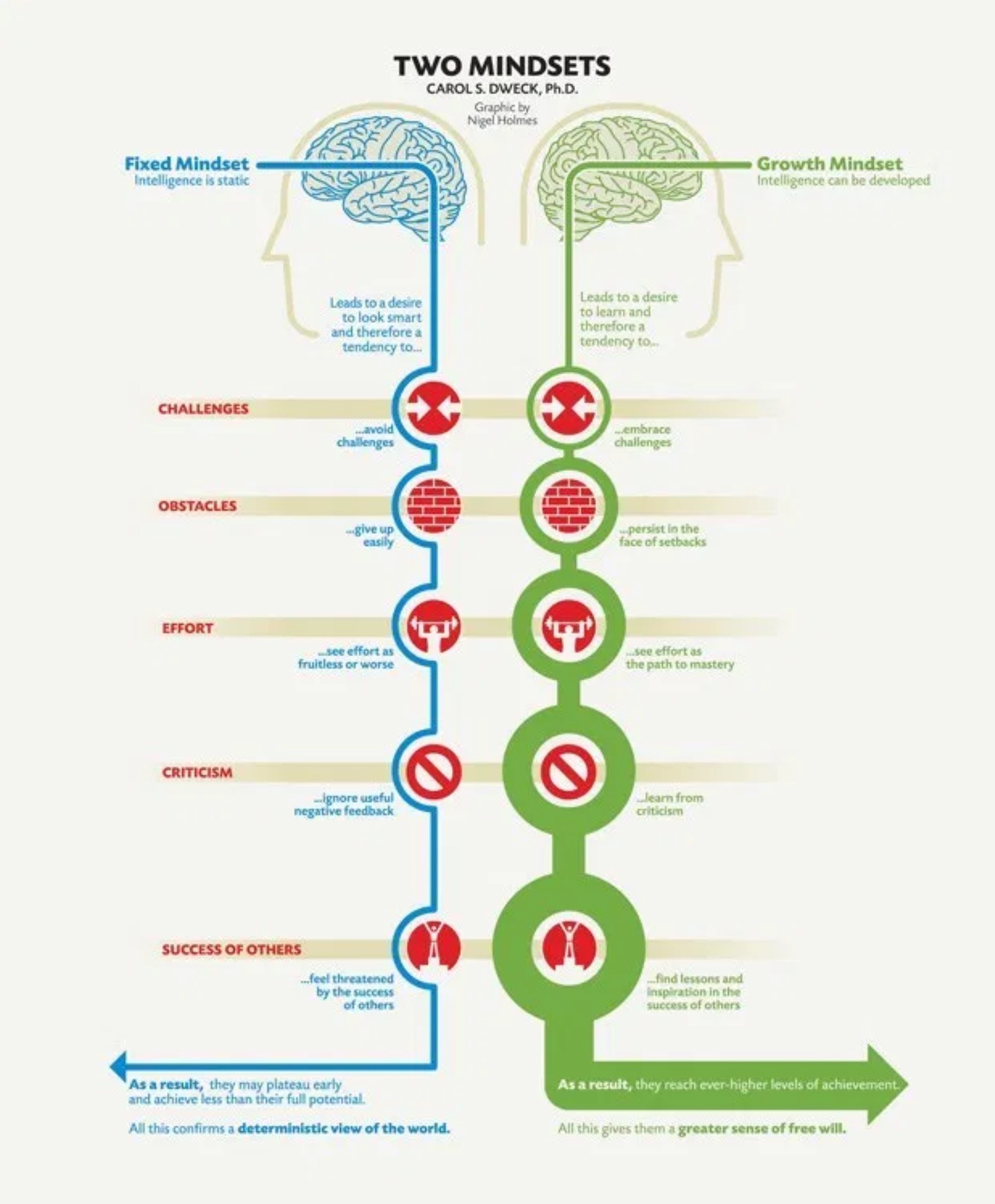‘Mindsets change what people strive for and what they see as success. . . they change the definition, significance, and impact of failure. . . they change the deepest meaning of effort.’
– Carol Dweck
Stanford psychology professor Carol Dweck has spent her life studying human motivation. She’s undertaken decades of painstaking research to understand why people succeed (or don’t) and what’s within our control when it comes to success and failure.
In her 2006 book Mindset: The New Psychology of Success, Dweck developed her theory of growth mindset, which has game-changing implications for almost all organisations, including Australian NFPs.
Typically, skills and experience are high on the list of priorities during a recruitment process. But Dweck’s theory suggests that mindset may be an even more powerful determinant of both professional effectiveness and leadership potential.
She found that teams with a growth mindset were less focused on merely looking good and more interested in learning and improving. This ultimately delivered better outcomes for their organisation and contributed to a stronger team culture.
What is a ‘fixed mindset’?
When Mary* was hired as the new director of the Smyth St Kindergarten*, the board and the staff members were excited. She had years of management experience and a track record that could help the organisation to finally get a rating of ‘Exceeding the National Quality Standard’ which they had been aiming for.
But almost as soon as she started, there was conflict with the existing staff. When staff raised some of their concerns with her – around the gruff way she sometimes spoke to them and also to the children – her answer was simple and direct:
‘Sorry, that’s just the way I am. I’ve always been like that.’
This is what Dweck calls a ‘fixed mindset’, which assumes intelligence, talents and behaviors are fixed attributes – innate gifts that do not change. People with a fixed mindset tend to plateau early in life and fall short of their potential.
So, what is a growth mindset?
A growth mindset is the belief that it’s possible to grow our brain’s capacity to learn and solve problems – to become smarter and more capable through effort.
Dweck’s research shows that people with this outlook tend to reach higher levels of achievement more quickly.
Dweck’s team conducted numerous studies into mindset with children. They discovered that children who had been praised for having natural ability sought out easier problems and were quickly discouraged when the tests became more challenging – performing progressively worse.
Meanwhile, children who had been praised for the effort they put in were excited by challenge. They enjoyed the tougher problems and performed better as the problems got harder.
At the end of the experiment, the children were asked to write letters to each other reporting on their experience. Disturbingly, 40% of the children with an ability-focus (or a fixed mindset outlook) lied about their scores and inflated the results to appear more successful.
This behaviour was also observed in the workplace, where employees at companies that embraced a fixed mindset were more likely to cheat and lie to appear successful.
This affirmed Dweck’s hypothesis that while people with a growth mindset were focused on becoming smarter, those with a fixed mindset were focused only on seeming smart and anything less than success was shameful and made them feel deficient.
Why should you seek out staff and volunteers that have a growth mindset?
A focus on mindset shifts the focus when recruiting staff and volunteers from “pedigree” to “runway” – that is from their credentials and past achievements – to their potential.
Organisations focused on runway will consider attributes such as potential and capacity to grow, including loving a challenge, wanting to collaborate and being capable independent learners – a growth mindset.
This outlook offers longer term benefit to NFPs working with limited resources and wanting to get the best value out of hiring decisions. It enables them to make hiring decisions that will benefit the organisation in the immediate term, and continue to pay off with increasing value over time as that candidate grows and develops in the role.
According to Dweck, people with a growth mindset not only work more collaboratively and achieve better results, they also choose more ambitious starting points, so they are further ahead from the very outset.
This means they can help organisations reach their full potential faster and more effectively; while people with a fixed mindset are more likely to stymie opportunities.

What benefits does having staff with a growth mindset offer an NFP organisation?
Hiring for mindset may seem riskier compared with the safer option of focusing on track record and credentials but here are three great reasons why you should do it:
1. Build a positive, high-performing team culture
People with a growth mindset are more collaborative and are more committed to the organisation. And where the organisation prioritises growth mindset, people are 47% more likely to say their colleagues are trustworthy and 34% more likely to feel a sense of ownership and commitment to the organisation. This creates a foundation for a strong team culture where people enjoy working together and want to achieve great outcomes for the organisation they love.
2. Solve problems and achieve more
Hiring staff with a focus on their own growth, learning and development means your organisation won’t be filled with people who are locked into legacy ways of thinking or “the way we’ve always done it”.
Instead, staff with a growth mindset are eager to solve problems, find new tools and approaches and are more likely embrace audacious goals instead of being intimidated by them.
This offers opportunities for continuous improvement day-to-day, and also for achieving more ambitious outcomes, as people feel more confident in taking risks to deliver more innovation.
3. Identify future leaders
Organisations that invest in a growth mindset reap the rewards as they unleash potential across the organisation and unearth leadership skills in unexpected places – including in entry level employees.
For example, tech giant Microsoft has been experimenting with a variety of ways to encourage a growth mindset across its organisation. It has discovered that encouraging creative thinking and risk-taking without the need for a guaranteed outcome not only helps them identify clever new ideas that increase profits in the business right now; but also allows the leaders of the future to shine.
Next week: How to hire staff and volunteers with a growth mindset.
* These names have been made up for this example.
Related Posts
- More NFPs are discovering the benefits of remote workers. Here’s how to update your recruitment process to make that work
- Different types of job titles & how to use them effectively
- Should you re-hire an employee who left your organisation? Here’s what the evidence says
- Six interview questions to recruit staff with a growth mindset



